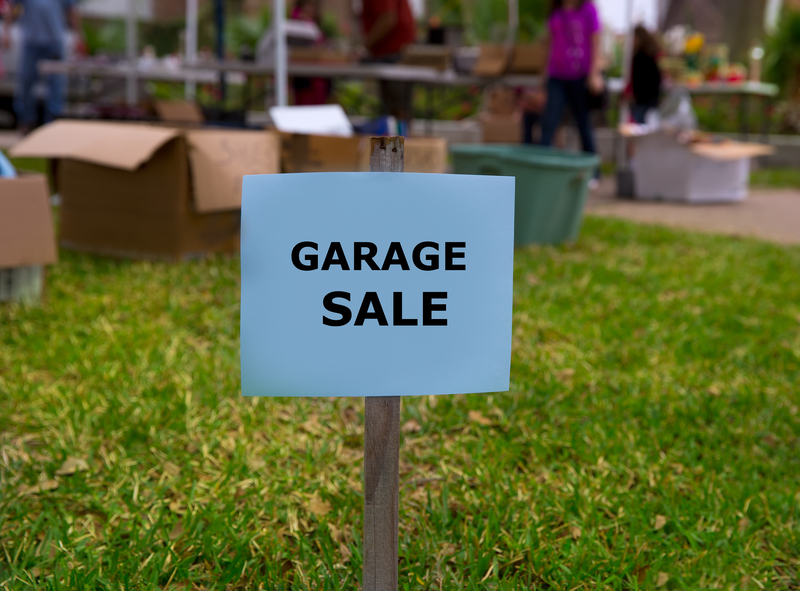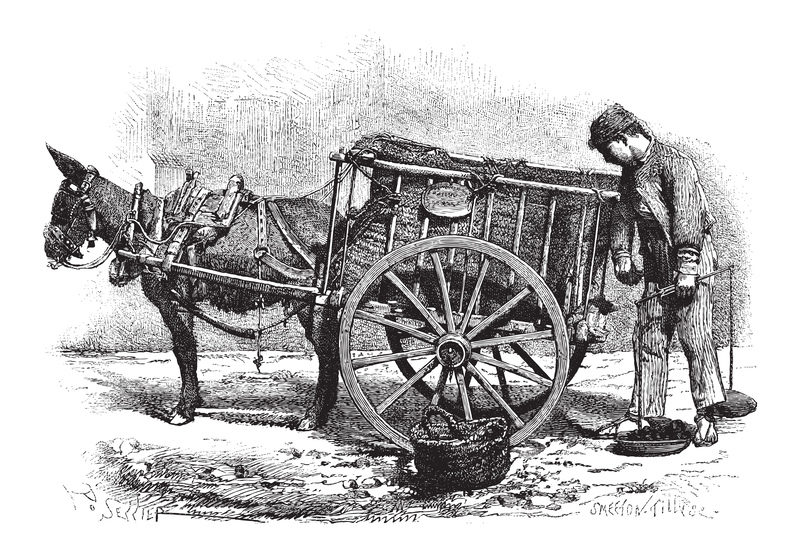Mastering the Art of Skip Hire: Dos and Don'ts
Disposing of large amounts of household, commercial, or construction waste can be a daunting task without the right tools. Thankfully, skip hire services have become the preferred choice for efficient waste management. Whether you're renovating your home, clearing out a garden, or managing a large construction site, mastering the art of skip hire ensures your project runs smoothly, responsibly, and cost-effectively.
What Is Skip Hire?
Skip hire refers to the service of renting skips--large open-topped containers--for collecting and transporting waste. Skips come in various sizes and are delivered to your site by a skip hire company, which also picks them up and handles appropriate waste disposal.
Why Is Skip Hire Important?
- Convenience: You can dispose of substantial waste volume in one go.
- Safety: Keeps your site clear of debris, reducing the risk of accidents.
- Environmental Responsibility: Reputable skip companies recycle and dispose of waste in accordance with regulations.
- Efficiency: Saves multiple trips to the local dump.

Choosing the Right Skip for Your Project
Before you begin searching for a skip hire company, it's essential to assess the type and volume of waste you intend to dispose of. This will determine the size and type of skip that fits your needs.
Common Skip Sizes Available
- Mini Skip (2-3 cubic yards): Ideal for small domestic clean-ups or garden waste.
- Midi Skip (4-5 cubic yards): Suitable for home renovation waste and medium clear-outs.
- Builder's Skip (6-8 cubic yards): The most popular for construction debris, bulky items, and heavy materials.
- Large/Maxi Skip (10-16 cubic yards): Best for large projects, complete house clearances, or commercial premises.
Tip: When in doubt, always opt for a slightly larger skip. Overfilling is not permitted and can lead to extra charges or collection refusal.
Dos of Mastering Skip Hire
Do: Evaluate Your Waste
- Estimate Volume: Measure approximate quantity of waste. Visual guides from skip hire providers can help.
- Type of Waste: Know what materials you'll dispose of--general waste, green waste, heavy materials (soil, bricks).
Do: Choose a Reputable Skip Hire Provider
- Look for companies with good customer reviews and reliable service.
- Ensure they have a valid waste carrier license, confirming they follow legal and environmental protocols.
- Compare quotes--but remember, the cheapest isn't always the best.
Do: Secure Required Permits
If you're placing the skip on public property (e.g., a street or pavement), you'll likely need a permit from your local authority. Many skip hire companies can arrange this for you, but it's your responsibility to check.
Do: Clearly Communicate Delivery & Collection Details
- Provide precise instructions on where the skip should be placed for easy access and collection.
- Confirm delivery and pick-up times to avoid delays.
Do: Use the Skip Efficiently
- Break down bulky items, flatten boxes, and disassemble furniture to maximize skip space.
- Load methodically: Place flat or heavy items at the bottom and fill gaps as you go.
- Stay below the rim: Overfilled skips are unsafe and may not be collected.
Do: Consider Environmental Impact
- Using skip hire not only streamlines waste removal but also supports responsible recycling when you choose an eco-conscious provider.
- Sort recyclable materials when possible and inform your provider about any hazardous items (like paint, batteries, or appliances).
Don'ts of Skip Hire
Don't: Dispose of Prohibited Items
Not everything can go into a skip. Strict rules govern the disposal of hazardous and prohibited waste. Items typically banned from skips include:
- Asbestos
- Electrical equipment (TVs, fridges, washing machines)
- Tyres
- Batteries
- Paints, solvents, and fuel
- Liquids (oil, chemicals, etc.)
- Gas cylinders
- Plasterboard (in some cases, must be disposed of separately)
Failure to comply can result in fines, extra charges, or refusal to collect your skip. Always check the list of allowed and prohibited items with your provider.
Don't: Overfill the Skip
Skips should never be filled beyond their "level load line" or the top rim. Overfilled skips are dangerous during transportation, risking spills or accidents and incurring legal issues. Most skip hire companies will not collect an overloaded container and may require you to remove excess waste at your cost.
Don't: Block Access or Violate Local Laws
Placing your skip illegally on public roads or blocking pathways can lead to complaints, fines, and mandatory removal. Always ensure your skip is accessible but not obstructing driveways, entrances, or public paths. Obtain the necessary permits and follow all local council regulations.
Don't: Ignore Environmental Guidelines
- Cross-contamination: Don't mix hazardous waste with general rubbish, or combine building rubble with household junk if specific skips are provided for each.
- Fly-tipping: Avoid dumping additional waste around the skip or in public areas--it's illegal and carries hefty fines.
Don't: Let Others Use Your Skip Without Permission
When a skip is left on public property, it's not uncommon for others to add their own waste. This can fill up your skip prematurely and may expose you to liability if prohibited items are deposited. Consider covering the skip when not in use (some companies offer lockable skips for added security).
Maximizing the Benefits of Skip Hire
Mastering skip hire isn't just about following the rules--it's also about making the process as seamless and economical as possible. Here's how you can make the most out of your waste container rental:
1. Plan Ahead
- Schedule the skip for a period when you can load it efficiently--ideally, have waste ready before it arrives.
- Plan manpower for heavy or bulky items. Don't overexert yourself--ask for assistance if needed.
2. Load Smartly
Disassemble, flatten, and stack: Fill the skip with the heaviest or flattest materials first, such as doors, sheetrock, or tiles. Fill gaps with smaller items. This approach lets you maximize the use of space and avoid underutilizing your skip.
3. Separate Waste Where Possible
Some skip hire providers offer segregated skips for recycling wood, metal, green waste, or rubble. This approach minimizes environmental impact and sometimes reduces your hire costs by helping the company avoid additional sorting fees.
4. Consider Duration
- Don't keep the skip longer than necessary--extra days incur extra costs.
- Coordinate demolition or clean-up works to coincide with skip delivery for maximum efficiency.
Legal and Safety Considerations
Essential Legal Requirements
- Permits: As mentioned, skips placed on public highways require a permit. Without one, you're liable for fines or forced removal.
- Lighting and Markings: If your skip is on a street, it may need reflective markings, night-time lighting, or traffic cones--check your local regulations.
- Insurance: Check that your skip hire company is insured for public liability--especially crucial if placed on a public road.
Health and Safety Tips for Skip Users
- Lifting: Use proper technique, keep your back straight, and avoid overfilling with dense materials.
- Sharp Objects: Be cautious with glass, metal, or timber; wear gloves to protect your hands.
- Fire Hazards: Never throw hot ashes or flammable materials into the skip.

Skip Hire FAQs
How long can I keep a skip?
Most skip hire services offer periods ranging from a few days up to 2 weeks. Extensions are possible but may incur extra charges. Always communicate your schedule with the provider in advance.
What is the average cost of skip hire?
Prices depend on skip size, location, the hire period, and waste type. As of 2024, small skips can start from ?60-?120, with large skips costing ?200-?350+. Urban areas and longer hire durations tend to be pricier.
Can I move a skip once it's delivered?
No. Skips are heavy and are best moved using specialist vehicles. Relocating them yourself can damage property, risk injury, or violate permit terms.
What happens to the waste after collection?
Reputable providers transport skips to licensed waste recycling and treatment centers. Much of the material is sorted and recycled, with residual waste disposed of securely.
Conclusion: Become a Skip Hire Pro
Mastering the art of skip hire is about more than ordering a container--it's about making smart, eco-friendly choices throughout your project. By understanding the dos and don'ts outlined above, you'll keep your site tidy, stay compliant with regulations, and protect both your wallet and the environment.
When hired and used properly, skips are an indispensable resource for major clear-outs, renovations, or commercial jobs. Take the time to evaluate your needs, follow local laws, and work with reputable companies. Whether you call it skip hire, container rental, or waste removal service, a little preparation goes a long way toward a hassle-free experience!